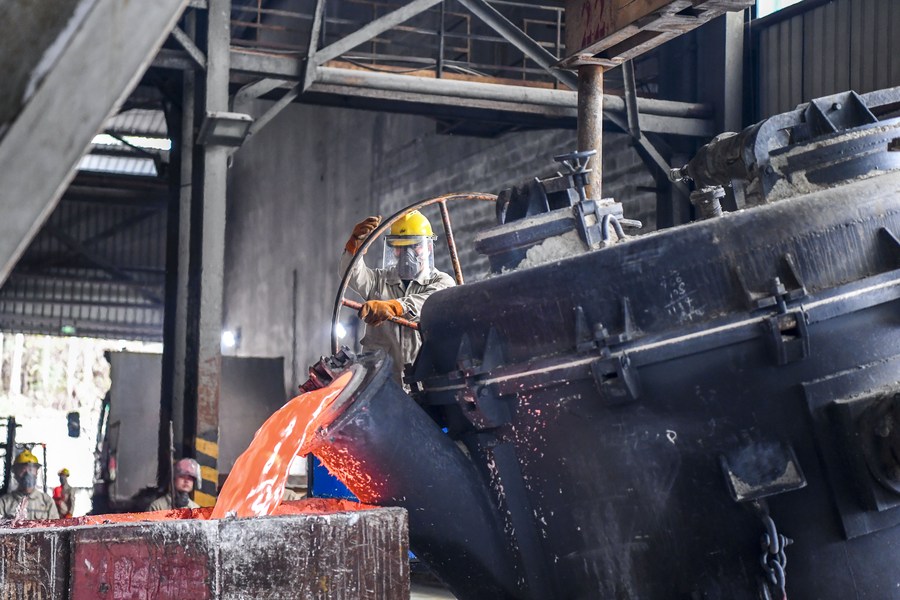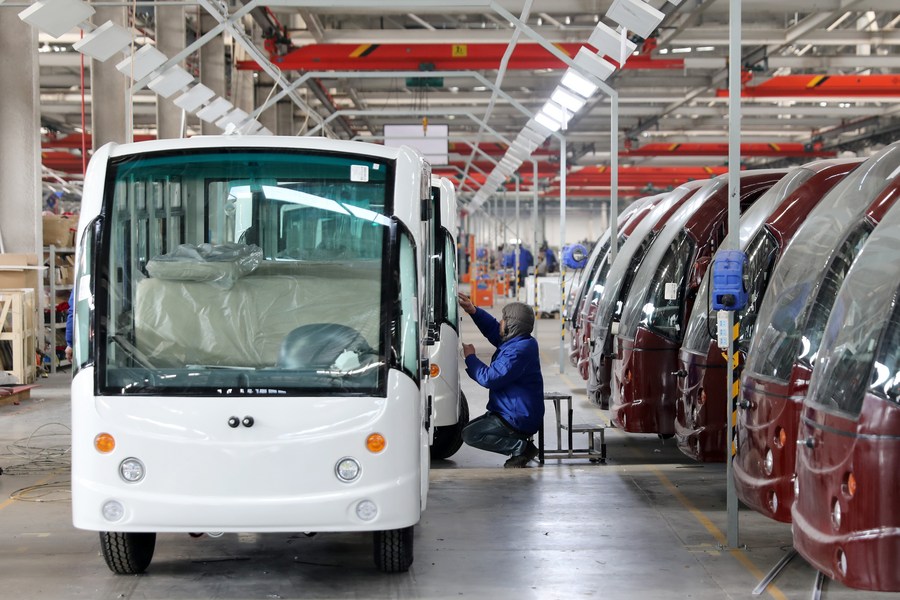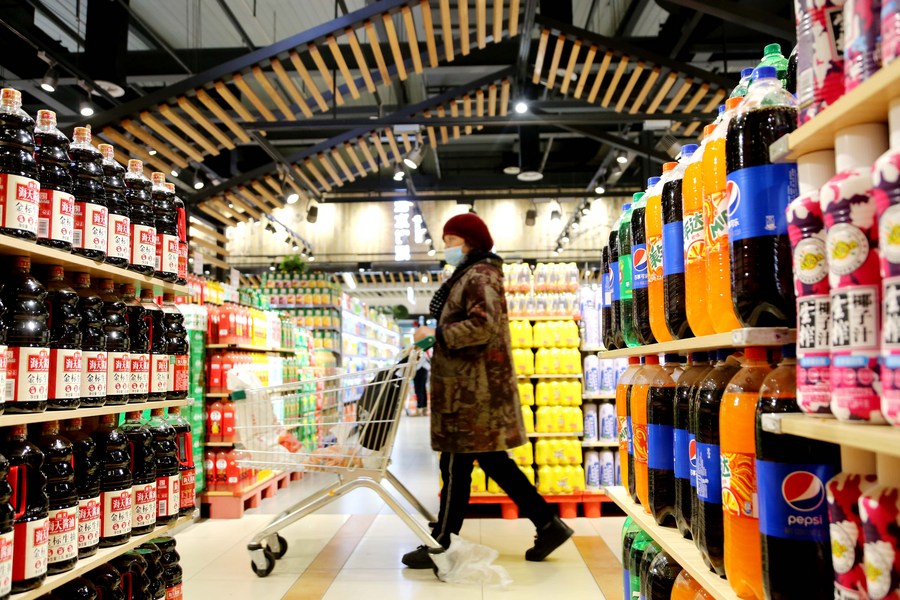
China's economy started the year on a positive note, with the country capable of maintaining steady, healthy growth despite headwinds, a senior U.S. economist has said.

"The headline manufacturing growth data, investment growth and especially high-tech investment growth rates look like they describe a healthy acceleration in 2022," said Albert Keidel, a development economist specializing in East Asia, told Xinhua in a recent interview, commenting on China's January-February economic readings recently released by its National Bureau of Statistics.
"China's macro fundamentals are very good" as "the investment rate in GDP is still very high," said Keidel, an adjunct professor of economics at George Washington University.
The Chinese economy sustained a steady recovery in the first two months, with major production and demand indicators reporting sound year-on-year growth, official data showed in mid-March.
In January and February, China's value-added industrial output and retail sales of consumer goods increased 7.5 and 6.7 percent year-on-year, 3.2 and 5 percentage points higher, respectively, than in December last year.
China's fixed-asset investment went up 12.2 percent year-on-year in the two months, while investment in high-tech rose by 34.4 percent with rapid investment growth in high-tech manufacturing and services.
The economist, previously a senior fellow at the Atlantic Council, a U.S. think tank, said China's already strong investment levels across the board, combined with its continuous efforts to shore up demand, is "just a good strong formula" for growth.
Meanwhile, China's sustained policy orientation on urban growth and integration of the rural workforce further into urban formal labor supplies "is good for growth of the middle class and its contribution to consumption growth," he said.

Keidel, also a former senior economist at the World Bank's Beijing office, noted that the marked investment increase in high-tech manufacturing is "a real testament" to China's ability to quickly respond to international uncertainties to reduce risks in related sectors.
While virtually all sectors have potential, fields like new-energy automobiles, industrial robots and solar cells will become increasingly promising, especially as the country is committed to achieving high-quality and green development, he said.
"China's plans for stronger overall demand through fiscal expansion, including at the local level, will combine with the already high investment rate in GDP, to generate strong healthy GDP growth," said Keidel.
Noting that China's economy still faces multiple challenges, including the Omicron outbreak and geopolitical uncertainties, Keidel said he believes in the country's decisiveness and ability to turn on resources fiscally and financially to navigate economic headwinds.
China's response to the economic fallout from the COVID-19 pandemic "has been observed to be on target and in the proper amount," he said.

"China has been very clever in putting funds, particularly through its e-finance capabilities, which are so complex and really well-developed, to be able to put money into people's accounts so that they can spend it," he said, adding the move "was a really very creative solution, an alternative to a massive spending spree."
Keidel voiced his confidence in China's sustained economic recovery and future growth.
China's two-year average GDP growth 2019-2021 was 5.1 percent, and its overall output in 2021 was on a growth trajectory, laying a stable foundation for the country to achieve its growth target this year.
In addition, China's recent policy proposals ranging from fiscal stimulus to financial easing will facilitate a sound recovery, the economist said.
"That sort of multi-faceted approach means to me that if China can match its high rate of investment in GDP with expansion of demand, that growth is bound to be healthy," Keidel added.